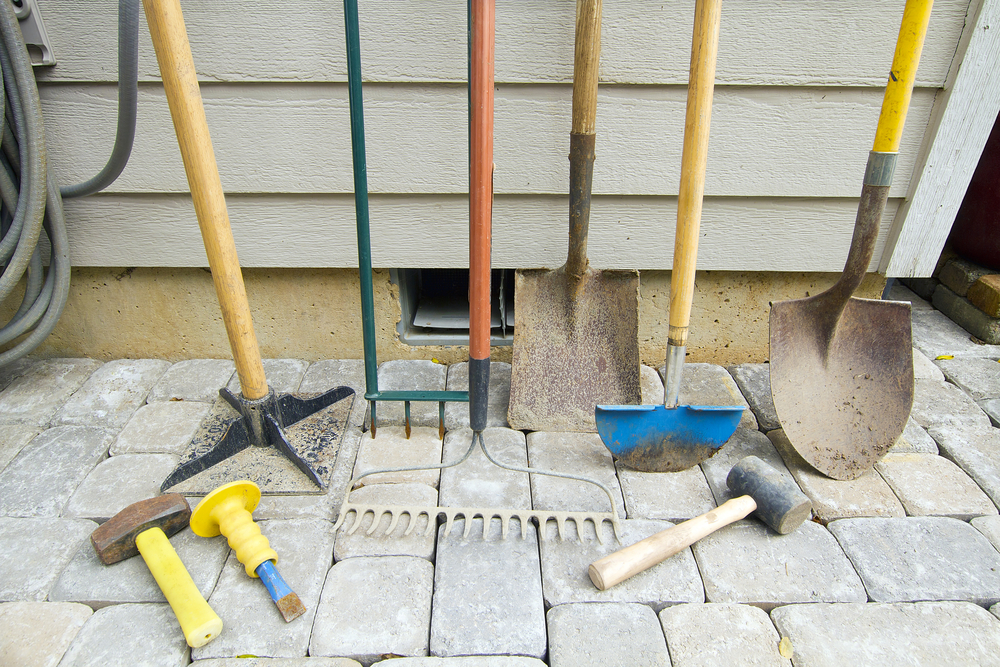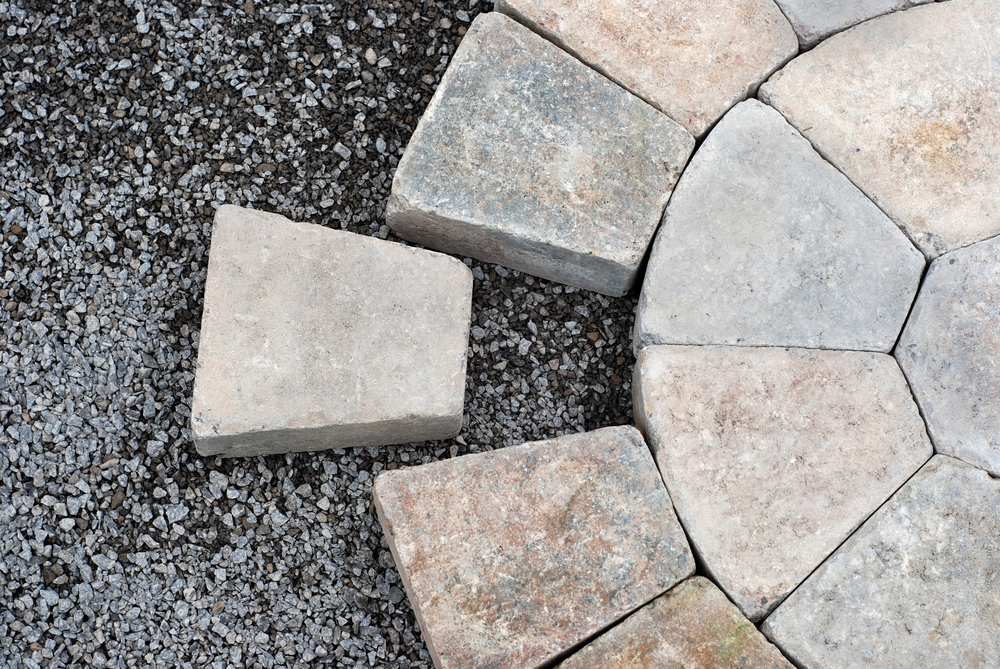When a do-it-yourself landscaping project is finished, there’s often material left over, like bricks and chunks of concrete. Not to mention, there might be equipment that you no longer need.
So what are your options? Well, you could throw everything away or donate it. Or you could get your money’s worth by saving it until your next landscaping project comes around—if you’re particularly hands-on when it comes to your yard, you know that’s bound to happen. But where can you keep these extra supplies and tools? Having a big stack of bricks and wheelbarrows scattered all over your garage or driveway is a nuisance.
If you want to keep your landscaping project supplies without taking up valuable space, rent a self storage unit!
Preparing Landscaping Equipment for Storage
 Non-electrical equipment simply needs to be cleaned before storage, as dirt, grass, and other debris will draw insects to your storage unit. With sharp tools like hedge clippers and tillers, be sure to wipe down the blades and sharpen them so they’ll be ready for immediate use the next time you work on your home’s landscaping.
Non-electrical equipment simply needs to be cleaned before storage, as dirt, grass, and other debris will draw insects to your storage unit. With sharp tools like hedge clippers and tillers, be sure to wipe down the blades and sharpen them so they’ll be ready for immediate use the next time you work on your home’s landscaping.
Electrical equipment like edgers and lawn mowers, however, require special maintenance before storage in order to keep everything functioning properly.
“We recommend putting fresh oil in the landscaping equipment, and some fuel stabilizer in the fuel tank,” says Ryno Lawn Care in Lewisville, Tex. “The amount of ethanol in our fuel today causes a lot of damage to carburetors if it sits there too long. A fuel stabilizer keeps the gas more stable.”
Maintenance is also important for those storing electrical equipment in regions that see cold winters.
“The most important thing in winterizing is fuel,” says North Dakota-based ECHO Bear Cat, which sells chippers, trimmers, log splitters, and more. “If ethanol-blended fuel is used, always use a stabilizer during use and storage. Better yet, run the machine until empty or discard the fuel at an authorized disposal center.”
Ryno Lawn Care agrees. “When ethanol fuel is used, the alcohol will separate from the gasoline and combine with moisture from the atmosphere or condensation. This is likely to corrode the carburetor.”
It can’t be stressed enough—don’t forget about your equipment’s maintenance before it goes to storage.
Where and How to Store Landscaping Supplies and Equipment


Fernando Corona, manager for Armour Self Storage in El Paso, Texas, says a good facility will have “24-hour video surveillance, a computerized gate system, and a resident manager who [lives on or near the facility].”
You may also look at facilities that offer climate-controlled storage. This is useful if you plan to store moist materials like mulch, which can stimulate mold growth when kept in confined environments with too much heat and humidity. Climate control can even protect the internal circuitry of your power tools from damage caused by extreme temperatures and humidity, too.
As for unit size, the amount of supplies and equipment you need to store will ultimately determine how much space you’ll need. For instance, if you’re storing small equipment along with a few hand tools, such as rakes and trowels, a 5×5 will be more than enough to satisfy your needs. The same applies if you’re storing, say, a small tub of bricks.
But what if you’re storing piles of stone, shovels, wheelbarrows, tillers, bags of dirt, and more? “It depends,” says Corona. “If you’re storing items you want to access [easily], I’d recommend a 10×15 or a 10×20.” Having a larger unit makes it more convenient to find items in your unit without getting injured. Also, it’s easier to organize your supplies in a larger space.
Lastly, be aware that most storage facilities have policies about storing hazardous materials. Corona recommends not storing “insecticides or anything that might be flammable” in your unit, as this is a safety hazard and could lead to you being vacated from the premises. For similar reasons, don’t store gas or other fuel sources in your unit.





